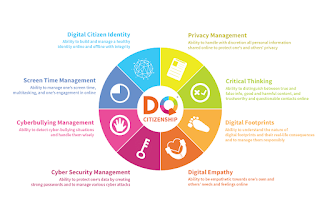6 February
marks Safer Internet Day.
There is no better occasion to call the attention of parents, policy makers,
providers and other actors working for internet safety that parents are key to educate
their children to become responsible digital citizens, they need empowerment
and education for that, and that safety will not be achieved by restrictive
legislative measures instead.
This year’s
topic "Create, connect and share respect: A better internet starts with
you" is a great starting point for awareness raising. In Europe there is a
loud group of stakeholders that are trying to lull parents into a false feeling
of safety stating that it is possible to create a special safe internet highway
for children by restrictive measures.
We must be
aware that it is not possible, and making parents think this endangers children
more. Parents need to be aware that compulsory parental consent – apart from
being a severe violation of parents’ rights – will not make internet any safer
for our children, but may restrict their rights to education, to play and
participate in artistic activities, to be connected to their relatives, to
peaceful assembly and to freedom of assembly.
What we need
instead is investment in parental empowerment. Parents need to be aware that
the best way to internet safety is a combination of them increasing their
knowledge about all aspects of their children’s lives including online presence
and building a trustful relationship with their children so that they learn about
even the smallest harm be it online or offline.
The GDPR is
likely to enter into force in less than half a year in the EU. Article 8 contains
measures on compulsory parental consent leaving the threshold age to be between
13 and 16 to Member States, letting providers go off the hook being responsible
for children’s safety. Even these age differences raise questions: what happens
if the threshold is different in the country where the provider resides and the
one the user is. Action groups around Europe are still trying to prevent the
introduction of these measures, parents support these, this is why EPA joined
the #GDPRHaveYourSay
action group after a very positive discussion at the Pafos EPA Conference in April 2017. Parents are represented in the GDPR Expert Group set up by the
European Commission and keep raising concerns, but we don’t have high hopes.
Regardless
the success of these motions we must keep working for the best interest of
children and this means working for empowering parents. Organised parents in
Europe and beyond have worked in the spirit of the EPA policy
paper on Cyberbullying and Social Networks published in 2015: “The aim of
parental presence on the internet and in social networks should not be the
control of our children, the intention to violate their freedom or invade their
privacy.” We need the support of service providers to make it possible for parents
to understand how their services work, and also policy makers who understand
the legal implications of their actions and who are in a position to
incentivise investment in parents’ empowerment.
Parents are
in line with the effort of the Council of Europe on fostering responsible
digital citizenship from an early age, and it requires the possibility of
online presence. There is a need to stop implementing COPPA* in Europe as it
also violates child rights and leave the decision on starting age of using
online services to children properly guided by their empowered parents.
Safer
Internet Day is a good opportunity to raise these concerns again and call for
action by stakeholders, especially policy makers, online service providers and supporters
of Safer Internet Day.
*COPPA: Children's Online Privacy Protection Act of the USA
*COPPA: Children's Online Privacy Protection Act of the USA



This comment has been removed by a blog administrator.
ReplyDelete